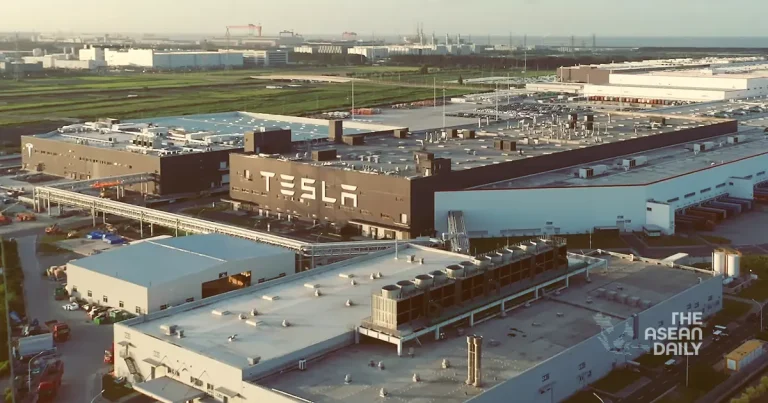9-8-2024 (KUALA LUMPUR) The prospect of Tesla establishing multibillion-dollar ‘gigafactories’ in Southeast Asia appears to be dimming, despite months of persistent courtship by Thailand and Malaysia. Both nations’ leaders, including Thai Prime Minister Srettha Thavisin and Malaysian Prime Minister Anwar Ibrahim, had engaged in high-level talks with Elon Musk, the enigmatic billionaire at Tesla’s helm. Musk had previously expressed interest in bringing Tesla and his other ventures to Malaysia, citing his admiration for Anwar’s political journey.
However, recent developments suggest a shift in Tesla’s strategy. Amidst swirling rumours of the American automaker abandoning its factory plans in Malaysia, Thailand, and Indonesia, Malaysian Trade Minister Tengku Zafrul Aziz took to social media platform X to address the situation. He emphasised that while discussions with Musk had indeed taken place, “Tesla never made a commitment to open a factory here.” The minister refrained from directly confirming Tesla’s reported retreat from the region but insisted that the efforts to attract the company were not in vain.
Malaysia had gone to considerable lengths to entice Tesla, including waiving its long-standing affirmative action policy to allow the company entry without a local partner. Prime Minister Anwar had even equated Tesla’s interest to “putting in the equity” during a CNBC interview last year.

The apparent cooling of Tesla’s interest follows a report in Thai newspaper The Nation, which cited an anonymous official claiming that the company had abandoned plans for new factories in Thailand, Malaysia, and Indonesia, and withdrawn the team overseeing the project. Tesla has not responded to requests for comment or officially confirmed any changes to its regional ambitions.
Analysts suggest that any pullback from Tesla would likely be driven by market realities. Cassey Lee from the ISEAS – Yusof Ishak Institute notes, “Tesla would be a latecomer in this market, and its EVs are pricier than those of Chinese companies.” The Southeast Asian EV market, while potentially lucrative, is currently dominated by Chinese manufacturers like BYD, offering more competitively priced vehicles.
Despite this setback, Malaysia continues to attract significant investment in EV-related manufacturing. Minister Tengku Zafrul reported over 24.55 billion ringgit (US$5.5 billion) in investments from companies such as Chery, Samsung SDI Energy, and EVE Energy. Local manufacturers also contribute to Tesla’s global supply chain by providing components and automation systems.
The EV market in Southeast Asia is projected to grow substantially, with sales expected to reach between US$80 billion and US$100 billion by 2035, according to EY-Parthenon. However, the region’s price-sensitive consumers present a challenge for premium brands like Tesla. In Malaysia, the cheapest Tesla model starts at 181,000 ringgit (US$40,560), significantly higher than the 100,000 ringgit (US$22,400) floor price set by the government to protect local automakers.




